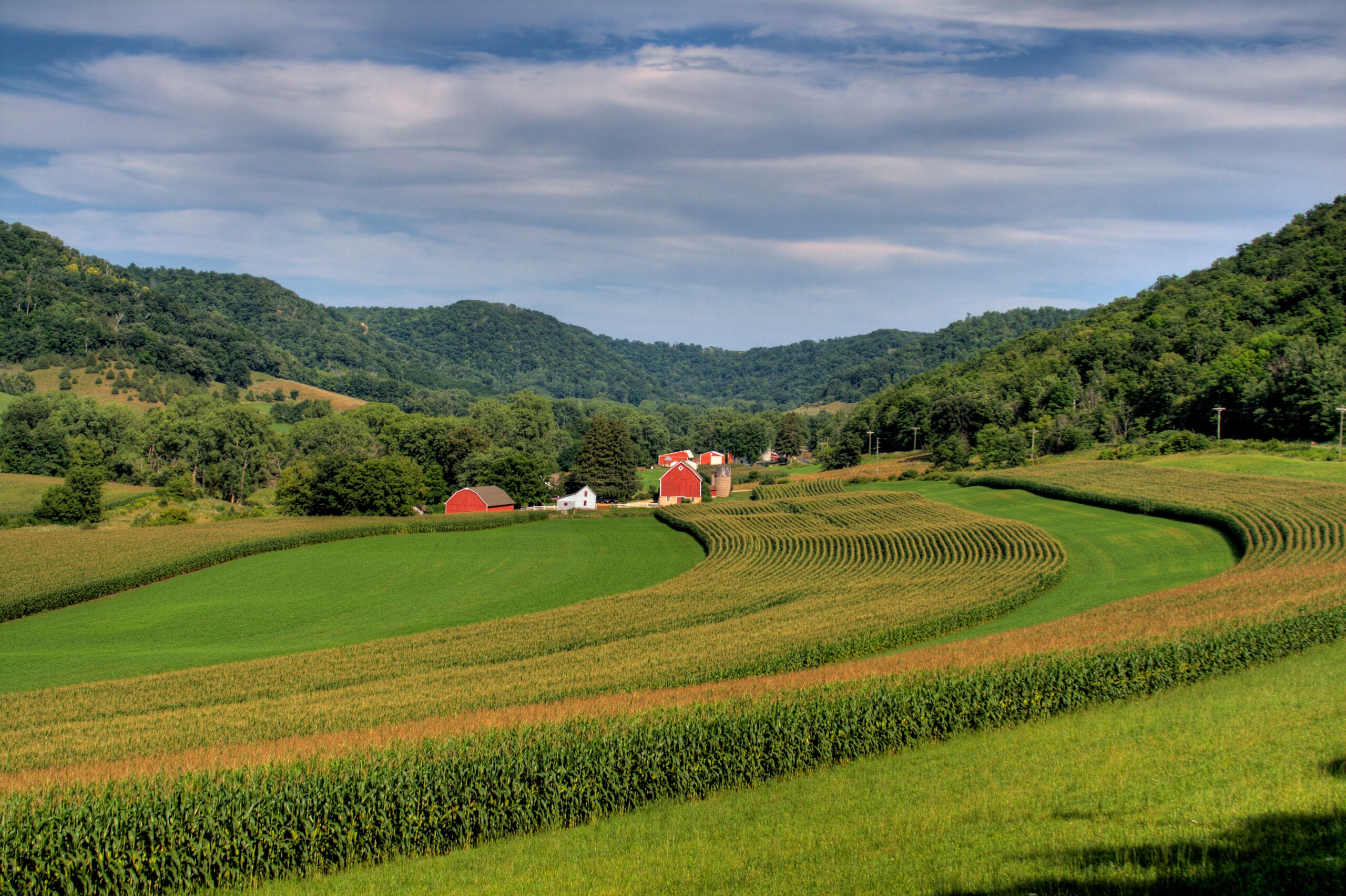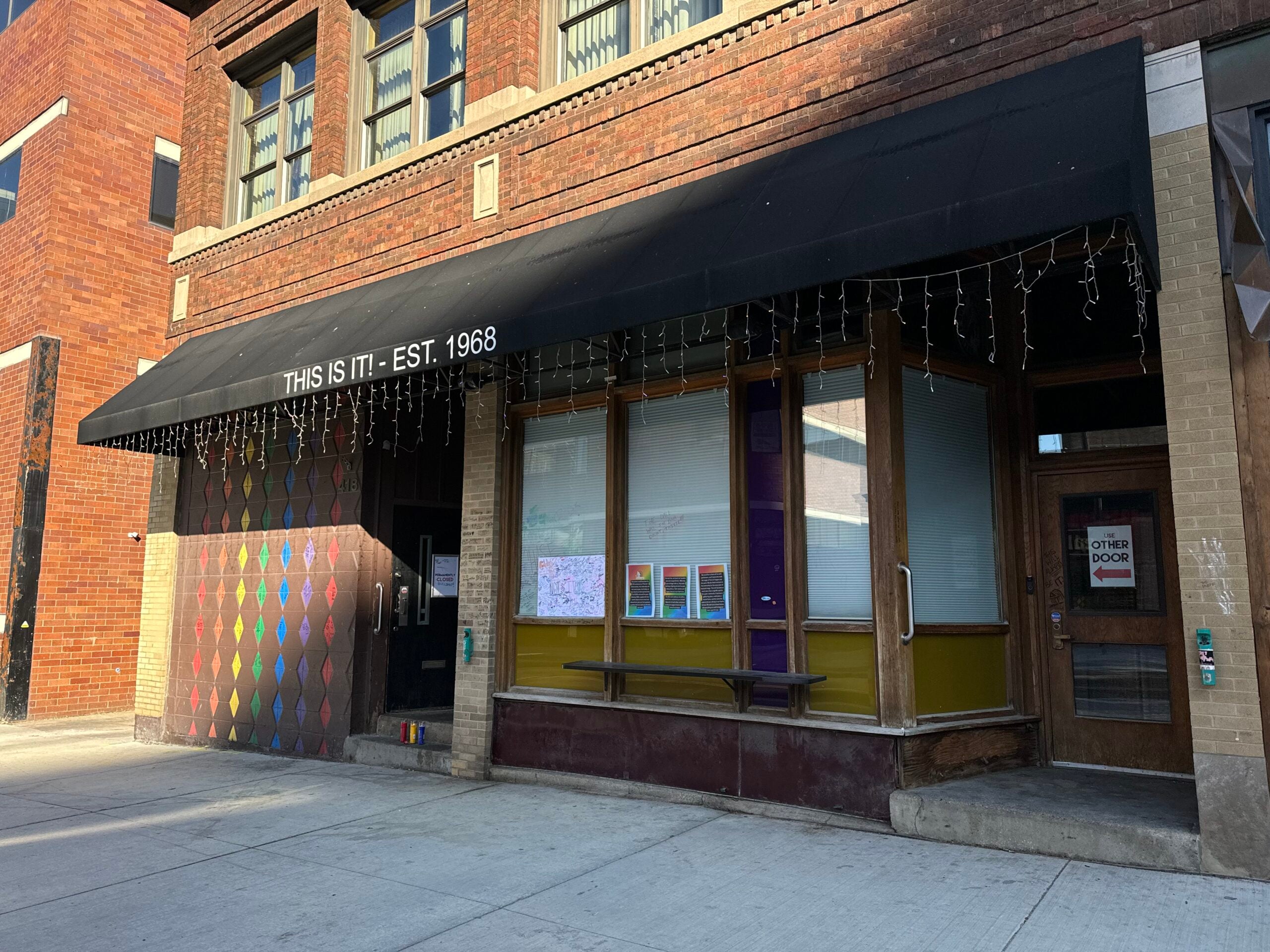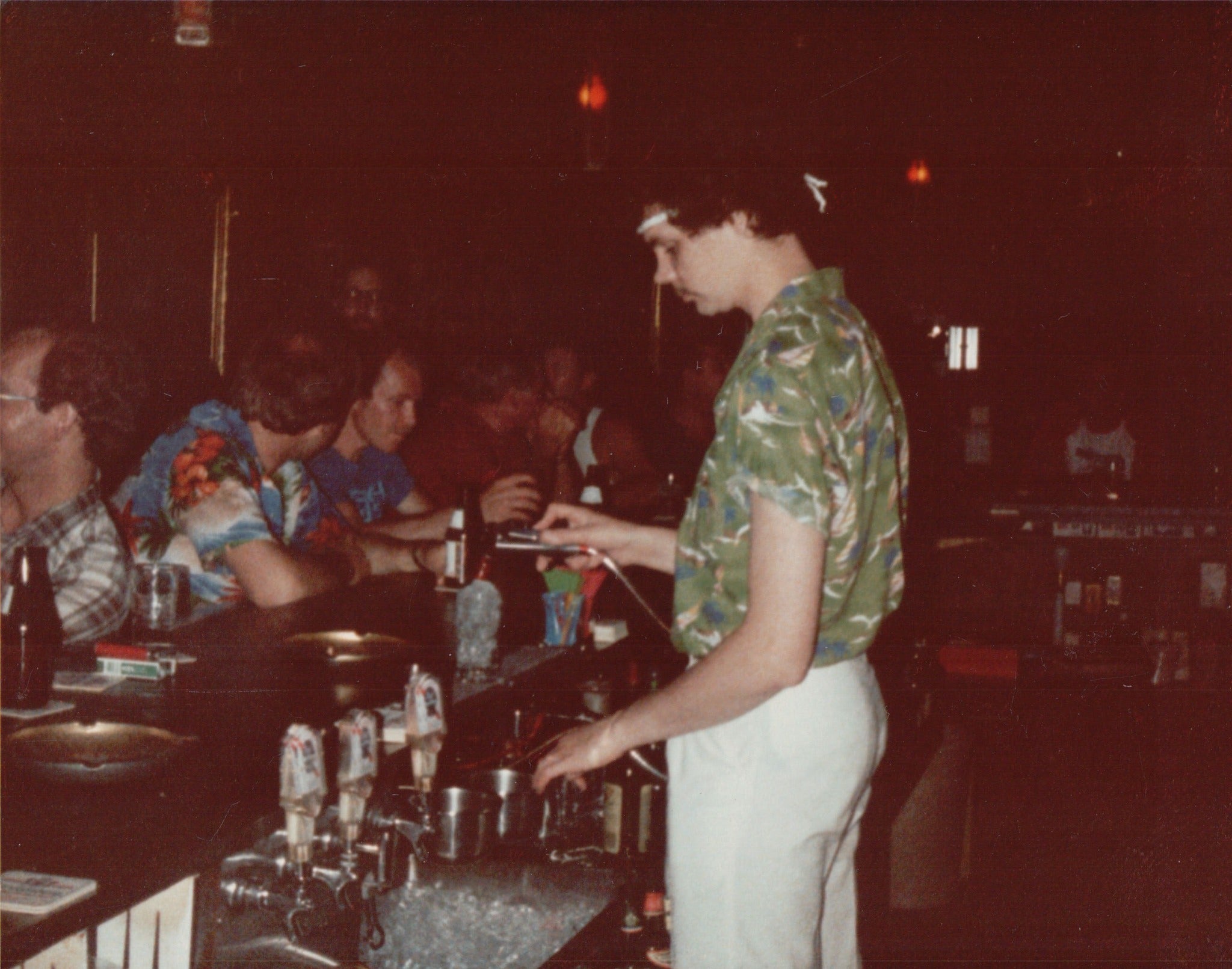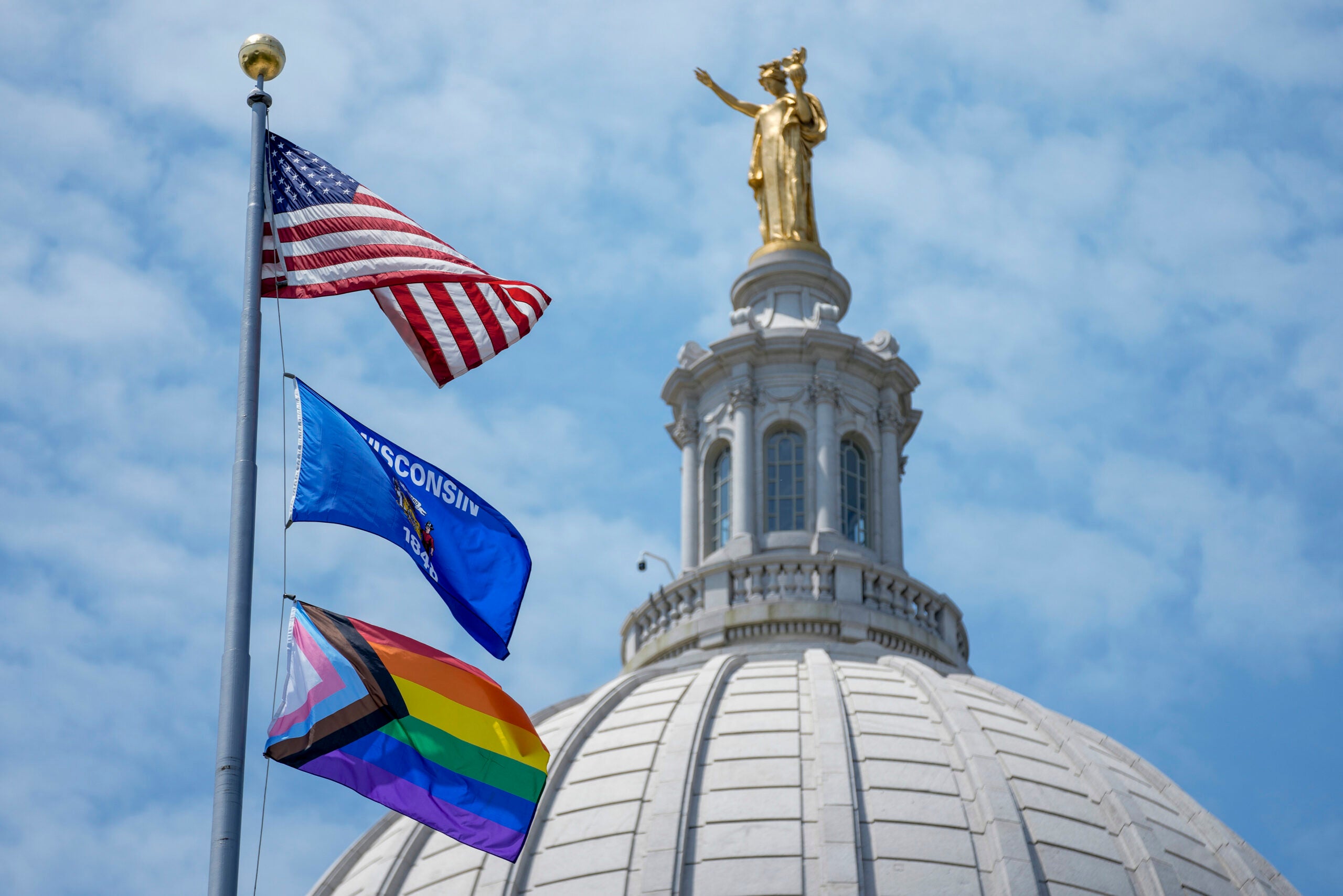When it comes to bad beaches, Wisconsin is near the top of the list. Veronica Rueckert and Mike Arnold find out why the water’s bad at the state’s beaches, and what can be done about it. They also continue Central Time’s ‘Out In Wisconsin’ series with a look at the Native American tradition of two-spirit people. Veronica and Mike also discuss a top news story of the day.
Featured in this Show
-
Native American 'Two-Spirit People' Serve Unique Roles Within Their Communities
Don’t ask Isaiah Brokenleg what his coming-out experience was like; His was a “coming-in” experience.
“Coming in is more about realizing that you are in this role as a Winkte, learning about what that role means, and then coming into your community to fulfill your social and spiritual responsibility,” said Brokenleg.
“Winkte,” in the Lakota language, literally means “a male-bodied person who speaks like a woman.” It refers to what most North Americans would call gay or transgender people. Traditionally, Winkte take on special spiritual or leadership roles, like naming young children, resolving disputes or praying for the sick.
While Winkte is a Lakota word, these kinds of leaders exist within Native American communities across the continent. In English, they are often referred to as “two-spirit people.”
According to Brokenleg — who himself is a member of the Rosebud Sioux Tribe, a branch of the Lakota people — the term comes from the idea of a person walking between two worlds: masculine and feminine, natural and supernatural.
“I think a lot of times, they were the healers and the counselors of the community because they could understand these different perspectives,” said Brokenleg. “Often, they were used as the translators or people who helped to build conciliation when there was conflict.”
Although Winkte serve an important role in his community, he said that it’s not meant to be a position of power.
“It’s really more of a servant leadership,” said Isaiah. “So, if someone asks you to pray for them, if they ask you to come be an MC at an event, that’s your responsibility to come and do that.”
His family began preparing him to come into his role from a young age.
“I was raised by my grandparents,” said Brokenleg. “They told me stories about how Winkte were to behave and act. I thought they told all my cousins these stories, but they only told them one or two stories and I got told many stories. That’s what ended up helping me in my process.”
While his grandparents encouraged him, he hasn’t always been supported within the Native American community. His father kicked him out of the house when he discovered Brokenleg was gay. He blames the homophobia that exists in the community largely on the influence of Western European colonization.
“I think with boarding schools, and a lot of the colonization and historical trauma, there’s also (now) homophobia that exists in Indian country, too,” said Brokenleg. “So, I think for a long time, some of those things were suppressed in our culture along with many of our language and cultural rights.”
Brokenleg also hasn’t found unconditional acceptance within the broader western LGBT community.
“The LGBT community often is a microcosm of the larger community, so there is racism and sexism and all of those things,” he said. “In the gay community, I feel like I can only be gay. I can’t be gay and Indian … For many people, I think the LGBT community is the white male LGBT community and (that) doesn’t always allow other folks into it.”
Western conceptions of gender and sexuality also often don’t match some Native American views, he said.
“Being Winkte is both my sexual orientation and my gender,” said Brokenleg. “Some communities might have up to six different genders … standard male and female, and then they might have a male-bodied female and a female-bodied male, on top of that they might have what we would consider a gay or a lesbian. And then on top of that, they might have a go-between, who is not meant to fill any one of those other places concretely.”
Brokenleg said he has trouble relating to the current national debate over same-sex marriage that has been a significant rallying point within the LGBT community. In his mind, “traditional marriage” includes couples of the same sex, who may or may not even be considered gay by Western standards.
“People always say (traditional) marriage is between a man and a woman… and I laugh when I hear that, because traditionally in my community, and many other communities, we had what you would call gay marriage way back before colonization ever came. It’s traditional in North America, whether you like it or not,” said Brokenleg.
Brokenleg acknowledges that this way of looking a gender and sexuality might be attractive to some members of the broader LGBT community, but he discourages them from mimicking it. He said he thinks people need to work within their own cultures, and not co-opt others.
“I always tell people to look in your own community, because in almost every indigenous culture that I know of there is a role for these folks,” he said. “That role exists for everyone.”
-
Weekly News Roundup: Attorney For John Doe Special Prosecutor Releases Statement Urging People Not To Jump To Conclusions
Here’s a rundown of some of the top news stories in Wisconsin this week:
- Walker Says Prosecutor’s Statement Helps “Set Record Straight” Regarding Allegations: The attorney for Francis Schmitz, the special prosecutor in the John Doe investigation, released a statement Thursday in which he urged people not to jump to conclusions based on documents released by a judge. These documents alleged that Gov. Scott Walker was part of a criminal scheme to bypass state election laws during the 2012 recall elections. The statement reiterated the fact that documents outlined the legal theory of the prosecution and that they didn’t establish that a crime had taken place. Walker responded that this statement is the first step in setting the record straight.
- DNR Board Approves New, Smaller Wolf Hunt Quota For 2014: This week, the state Department of Natural Resources Board voted to pass a hunting and trapping limit of 156 wolves for this fall. This new quota is substantially lower than last year’s, which was set at 250. Agency officials said they lowered the quota because of overall wolf mortality rates and its limited understanding of how the wolf harvest affects population. One of the things that won’t change this year is the use of dogs to track wolves, unless a court intervenes.
- Strike Against Utah Gay Marriage Ban Paves Way For Supreme Court Ruling: Stepping out of Wisconsin, a federal appeals court in Denver struck down Utah’s gay marriage ban on Wednesday. This is the first time a federal appeals court has weighed in on the issue. The court ruled that the 14th Amendment protects the fundamental right to marry, establish a family, raise children, and enjoy the full protection of a state’s marital laws. The ruling affects Utah, Colorado, New Mexico, Kansas, Oklahoma, and Wyoming. It’s also of interest to people tracking Wisconsin’s ban on same-sex marraige, which was struck down just a few weeks ago.
- Tribes Bypass State Rules, Want EPA To Stop GTAC Mine: Northern Wisconsin’s Chippewa Federation is looking to bypass the state government in their latest effort to stop the proposed iron ore mine in the Penokees. The tribes are asking the U.S. Environmental Protection Agency to stop all permitting activity in the Penokee Range, citing the danger it poses to the Lake Superior watershed. The tribes want the EPA to use the Clean Water Act to stop the mine like they have in Alaska. They’re aren’t expecting a reply and are meeting with the EPA in late August or September.
-
Wisconsin's Beaches Rank 8th Worst In The Country
According to a new report from the Natural Resource Defense Council, Wisconsin’s beaches have the 8th worst water in the country. One of the report’s authors talks about how that ranking was reached and what the state can do.
-
Some Native American communities have traditions of embracing gay and transgender members as “two-spirit people.” They are seen as serving a special role in the community. In Isaiah Brokenleg’s Rosebud Sioux Tribe tradition, these people are referred to as “winkte.”
-
State News Round-Up For June 27th, 2014
WPR’s assistant news director joins us to talk about the top stories making headlines in Wisconsin.
Episode Credits
- Mike Arnold Host
- Veronica Rueckert Host
- Galen Druke Producer
- Amanda Magnus Producer
- Isaiah Brokenleg Guest
- Noah Ovshinsky Guest
Wisconsin Public Radio, © Copyright 2025, Board of Regents of the University of Wisconsin System and Wisconsin Educational Communications Board.



